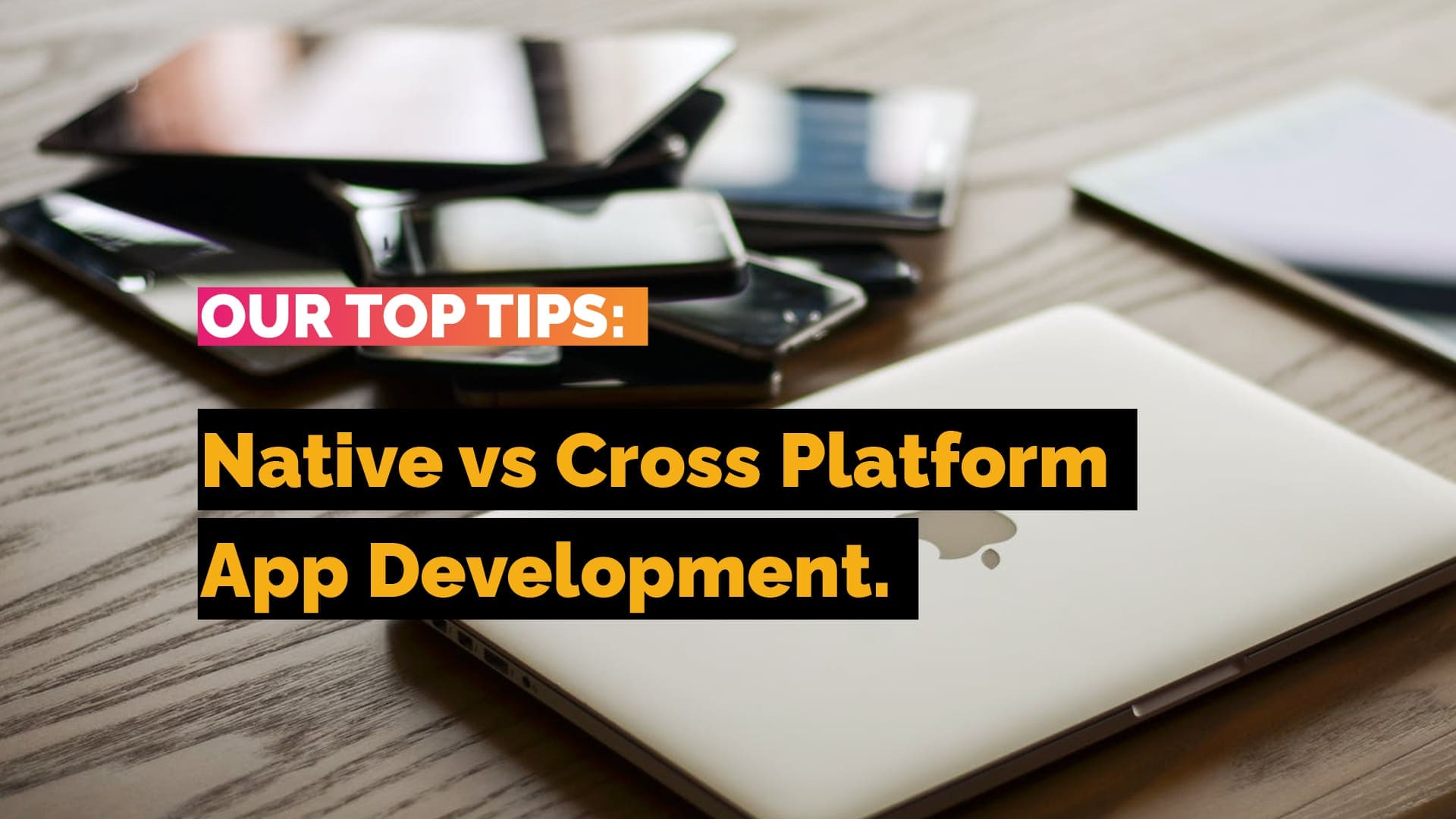In the realm of mobile app development, native and cross-platform platforms are the two primary options businesses must consider when embarking on their app development journey. By understanding the core principles and benefits of both approaches, you can determine the best path forward for your mobile app project and ensure an engaging, high-performing end product that resonates with your target audience.

In this post, we’ll delve into the world of native and cross-platform mobile app development, examining the advantages and disadvantages of both approaches, along with expert tips for choosing the optimal method for your specific business needs and goals. By weighing the flexibility, cost, performance, and ease of development associated with native and cross-platform app development, you can strategically select the most effective approach for your project, maximising the potential of your mobile app to capture the attention of your audience and position your brand at the forefront of today’s competitive mobile landscape.
Embarking on your mobile app development journey may can be an exciting and complex endeavour. With our invaluable support and expertise, you can confidently embrace the world of native and cross-platform development, creating exceptional, user-centric mobile app experiences that drive success and growth for your business.
Table of Contents
1.
Understanding Native Mobile App Development
Native mobile app development entails building apps separately for each mobile platform, employing platform-specific programming languages, tools, and frameworks. Let’s examine the benefits and drawbacks of native app development:
Advantages
High Performance
Native apps can deliver exceptional performance, as they are designed specifically for a particular operating system and hardware, optimising resource usage and ensuring a consistently smooth user experience.
Superior User Experience
By adhering to specific platform guidelines, native apps provide a fluid, intuitive user experience in line with the platform’s unique design principles, ensuring users feel comfortable and engaged throughout their interaction with the app.
Access to Device Features
Native apps have full access to the device’s hardware and software capabilities, allowing for seamless integration of features such as push notifications, GPS, camera, and other built-in functionalities.
Disadvantages
Higher Development Cost
Developing separate apps for each platform can be expensive and time-consuming, sometimes even requiring dedicated teams and resources with platform-specific expertise to build and maintain the apps depending on the scale and technologies used. This isn’t true for all apps, but for those that make use of device and/or platform-specific wares, it can prove a difficulty.
Longer Development Time
Each native app must comply with each platforms requirements, to ensure optimal functionality and security. This can in turn increase the time it takes to develop, test, and release updates for your app, creating different schedules and affecting development roadmaps per platform.
2.
Exploring Cross-Platform Mobile App Development
Cross-platform mobile app development involves creating a single app that can be deployed across multiple platforms, reducing development time and cost by reusing a single code base. Assess the pros and cons of cross-platform development:
Advantages
Reduced Development Time and Cost
With a single code base, cross-platform development enables faster, more cost-effective development cycles, mitigating the need for separate development teams with platform-specific expertise.
Easier Maintenance and Updates
Managing updates and bug fixes for cross-platform apps can be more straightforward, as changes and additions can be made to a single code base and deployed simultaneously across all supported platforms.
Wider Audience Reach
Cross-platform apps can be distributed across multiple marketplaces, helping you reach a broader audience without additional development time or expense.
Disadvantages
Potential Performance Limitations:
Cross-platform apps may not deliver the same level of performance as native apps, as they utilise a shared code base that may not be optimised for the unique hardware and software requirements of each platform.
User Experience Compromises:
While cross-platform apps can mimic platform-specific design principles to a certain extent, they may from time to time fall short of delivering a truly native-like user experience, potentially impacting user engagement and retention.
3.
Tips for Choosing the Best Approach for Your Business
Budget and resources:
Assess the financial and human resources available for your app development project. If your budget is limited, cross-platform development may be a more feasible option, while larger budgets may accommodate the higher costs associated with native app development.
User Experience Priorities:
Determine the level of importance placed on providing a seamless, platform-specific user experience and weigh the trade-offs between user experience and development time and cost.
Functionality Requirements:
Consider the extent to which your app relies on device features and hardware integration. If accessing built-in functionalities is essential, native development may be the better option.
Maintenance and Update Needs:
Evaluate your app’s anticipated requirements for ongoing maintenance and updates. If frequent updates and bug fixes are expected, cross-platform development may prove more efficient.
Conclusion
Collaborating with a skilled partner like VOiD Apps, *pulls suspenders*, can provide you with valuable guidance and support in making the right choice between native and cross-platform development, ensuring your app aligns with your business objectives and delivers an engaging mobile experience.
Identifying the best approach for your mobile app development project is crucial to achieving success. By evaluating the features, benefits, and drawbacks of native and cross-platform app development, you can confidently select the optimal solution for meeting your unique business needs and goals. Partner with us, and navigate the complexities of mobile app development and create exceptional, user-centric experiences that drive growth and innovation in the ever-evolving mobile landscape.








